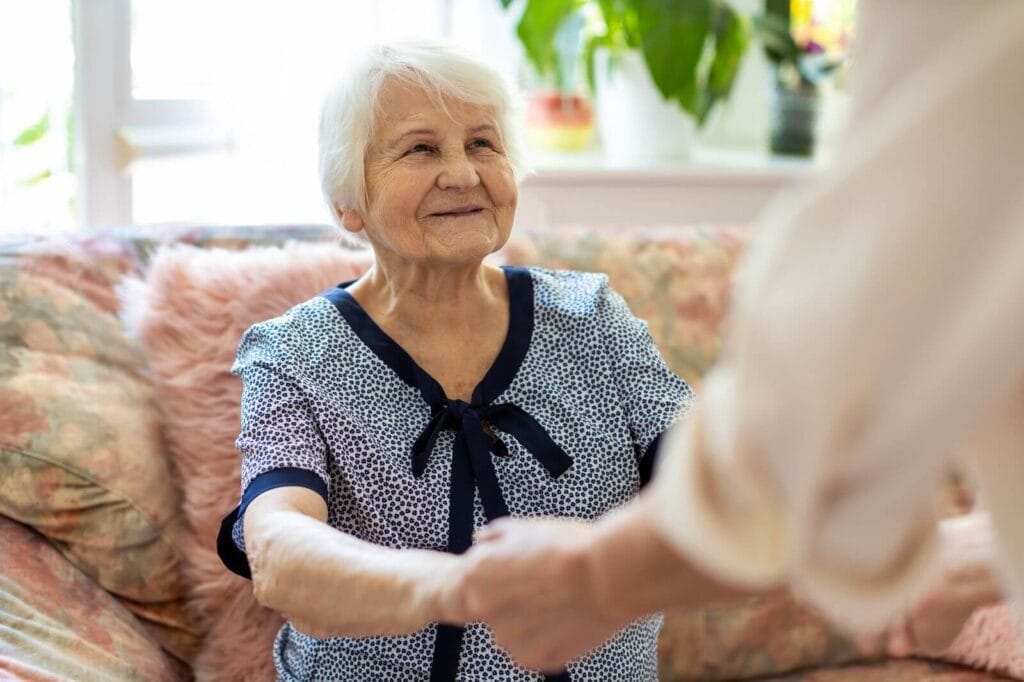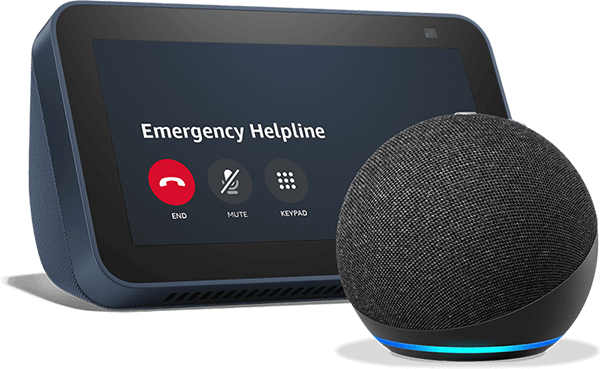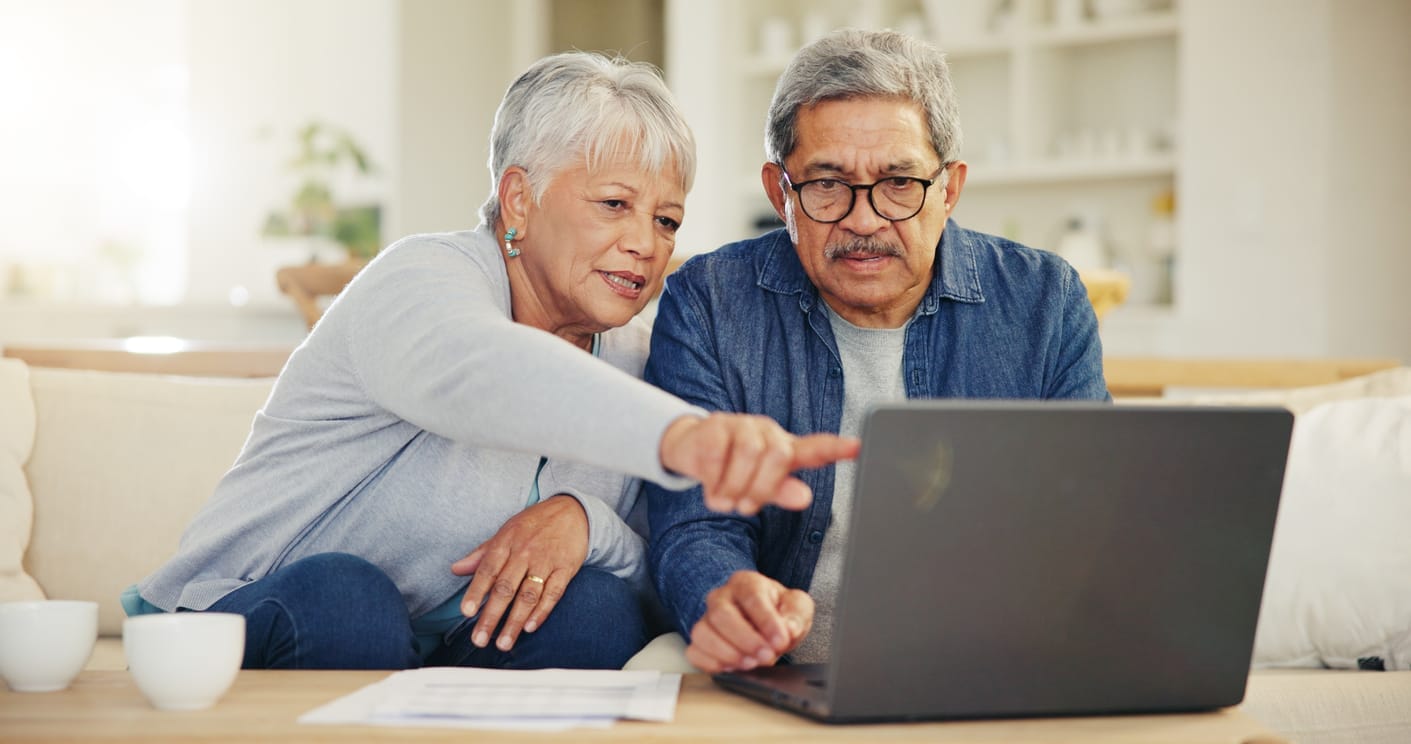
Alzheimer’s and other forms of dementia present safety challenges for the person diagnosed, especially if they are living at home rather than in a memory care facility. As the disease progresses, the symptoms contributing to these challenges become more and more prominent. Caring for a loved one with dementia can be a cause for stress, but luckily, some strategies and tools can help them stay safe while maintaining some independence in their own home. In this guide, you’ll learn dementia home safety tips and strategies to support a person living with dementia at home.
Complete a dementia home safety checklist
While many symptoms of dementia are cognitive, people may also experience some physical changes. They may struggle with depth perception and balance, increasing their risk of falls, which can be dangerous or even deadly to older adults.
Consider going through a home safety checklist to identify potential fall hazards in the home. Loose carpets, obstructed pathways, and dim lighting can all contribute to fall risks. There are simple solutions for many of these issues, like using rug tape or removing loose rugs, moving furniture, and installing proper lighting. You can purchase grab bars or bathroom shower chairs and ensure commonly used items are within easy reach. Other more involved fixes, like widening doorways and installing ramps, may also be helpful.
Get a medical ID bracelet
A medical ID bracelet, while simple, can be a powerful tool. In the event of an emergency, a person living with dementia may not be able to communicate their medical needs. A medical ID bracelet will alert first responders to their dementia diagnosis and other medical conditions. It can also provide information on how to contact family members.
While a medical ID bracelet is necessary for a person with dementia, it’s also helpful for another older adult who lives with them. If that person experiences a medical emergency, the person with dementia may not be able to express their loved one’s medical needs and conditions. The medical ID bracelet will ensure that first responders know this information.
Consider using a tracking tool
People living with dementia may experience confusion, which could lead to the individual becoming lost or attempting to leave or wander. Some families find that GPS tracking tools can help give peace of mind in the chance of a wandering incident.
You might use the location-sharing app if your loved one has a smartphone. However, it’s important to remember that this will only be effective if the person has their phone on them and it’s charged. Alternatively, there are tracking key chains and wearable trackers, like watches, jewelry, and even shoe soles that can be worn discreetly.
Get a medical alert system
A medical alert system could give you some peace of mind in caring for your loved one with dementia who is living at home. These devices, which are often wearable, ensure that they will get the help they need in the event of an emergency. Depending on the device, a simple button push is usually all your loved one needs to do to contact family members and/or emergency services. Some have fall detection, so your loved one can get help even without pushing a button. Others have GPS tracking, which can help if your loved one wanders or gets lost. These devices can be invaluable in ensuring the safety of your loved one.
Install an automatic stove shutoff
A person living with dementia may be at risk of leaving the stove on due to memory concerns. Some families can install an automatic stove shutoff. This tool shuts off the stove if it detects smoke or if the stove has been left on for a long time. If your stove is compatible, this can be a lifesaving device.
Utilize a medication management program
Memory concerns can result in an individual forgetting to take their medication or even taking it multiple times, leading to an accidental overdose. Depending on your loved one’s level of cognitive decline, there are a variety of simple or more complex tools and devices available to help with this issue.
You could use a simple weekly pillbox, create a master list of all medications and times, and set reminders with a phone or other timer. Timed pillboxes unlock the correct boxes at set times, so your loved one takes their medications only when the right section is open. Other pillboxes are more sophisticated and dispense the pills at preset times, giving access to only the needed medications.
Monitor internet usage
More and more frequently, there are scams on the internet that target older adults, though anyone can be susceptible. People living with dementia may be at an increased risk of falling victim to online scams. Memory issues and confusion may lead to them divulging personal information or even sending money to scammers.
While there’s no easy way to stop this threat, monitoring internet usage can be key to keeping your loved one’s identity and money safe. If you can, talk with your loved one about internet safety and ask if they are comfortable sharing their online passwords with you. This way, you can monitor their online activity and email to ensure they are not sharing personal or financial information with people they do not know. If your loved one has unfortunately fallen victim to an online scam, there are steps you can take to keep the problem from worsening, such as changing passwords and contacting financial institutions and law enforcement.
While not every emergency can be avoided, thinking about how your loved one’s dementia diagnosis can impact their safety will decrease the chance of something happening. It’s important to remember that none of these tools can replace another person providing support and supervision, but they can help as you care for your loved one. With thoughtful planning and implementing dementia home safety tools, you can help your loved one with dementia stay safe and independent for as long as possible.








